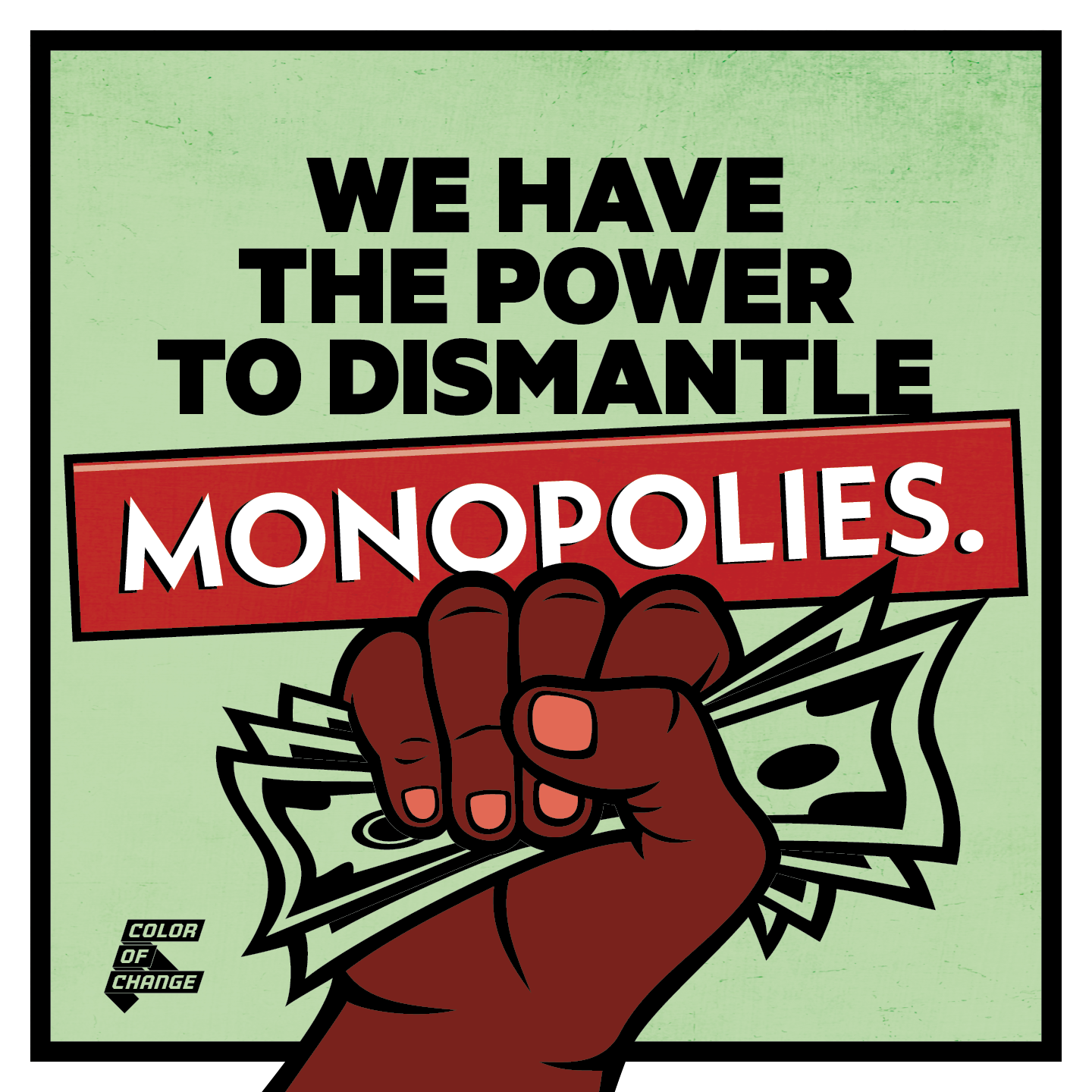John,
The COVID-19 pandemic has caused and exacerbated economic hardships for many Black people, where at least 35% of Black adults are worried about paying their bills and the amount of debt they carry.1 Meanwhile, many healthcare executives scored millions of dollars in bonuses and pay raises in 2020.2 Healthcare corporations have treated our healthcare system like a game of Monopoly. They buy up their competitors, close hospitals that are not profitable to them, and exploit patents to keep affordable medicines off the market.3-5 Much like Tenet Healthcare Corporation buying, selling, and closing hospitals in Philadelphia, healthcare corporations will put profits over the lives of Black patients.6,7 When our healthcare system becomes monopolized, we have fewer options, higher costs, and more roadblocks to healthcare reform. Essentially, we have been paying for CEOs’ profits through higher healthcare costs and our own livelihoods.
With the COVID-19 pandemic still ravaging the world, we need accessible and affordable healthcare more than ever. But even prior to the pandemic, the U.S. spent the most for healthcare compared to other countries, and that money has not translated to better health outcomes—especially for Black people.8 That’s why we need Congress to pass an antitrust package that will limit monopoly power.
Oftentimes, we talk to our members like you, John, about monopolies in Big Tech. But monopolies are not exclusive to Big Tech companies, like when Amazon bought Whole Foods and Twitch.com.9 Between 1995 and 2015, a series of mergers and acquisitions turned 60 pharmaceutical companies into just 10.10 This monopolization of the market has made medicine costs unaffordable for those who need it most. The price of insulin, for example, has jumped at least 300% between 2009 and 2019, which disproportionately impacts Black people who, due to historical inequities, face higher rates of diabetes.11,12 Additionally, residents in areas where the options in the health insurance markets are dwindling from consolidations saw a 7% increase in premiums.13
But it’s not just our health insurance prices that are affected. As health insurers monopolize, hospitals do too, so that they can maintain their own power. When corporations and hospitals alike play the game of Monopoly with our health, we pay the price. Their consolidation of power forces us to pay more for the healthcare and medicine we need.
Bad policies have led to unwieldy healthcare monopolies, but we have the power to dismantle them. Our communities have long dealt with the realities of monopolies. We can push for reform, and demand antitrust policies that break up these monopolies, limit their power, and ensure that companies’ policies prioritize racial justice. That’s why we’re asking for your support in demanding Congress pass antitrust bills with stronger racial justice language, such as the American Choice and Innovation Online Act. Add your name to the petition demanding Congress pass these bills and President Joe Biden sign them into law.
A better future is on the horizon. Color Of Change has been fighting against the harm caused by monopolies for years. The more support we have from our members, the more collective power we have, and the likelier it will be that we can rein in monopoly power for good.
TELL CONGRESS WE NEED ANTITRUST
Until justice is real,
Jade Magnus Ogunnaike and the Color Of Change team
References:
- Khadijah Edwards and Mark Hugo Lopez, “Black Americans say coronavirus has hit hard financially, but impact varies by education level, age,” Pew Research Center, May 12, 2021, https://act.colorofchange.org/go/324587?t=9&akid=52198%2E4731121%2EChCS9E.
- Shelby Livingston, “How 8 top healthcare execs scored massive paydays despite the pandemic,” Insider, April 8, 2021, https://act.colorofchange.org/go/324588?t=11&akid=52198%2E4731121%2EChCS9E.
- “Health Insurance & Monopoly,” Open Markets Institute, https://act.colorofchange.org/go/324589?t=13&akid=52198%2E4731121%2EChCS9E.
- “Hospitals & Monopoly,” Open Markets Institute, https://act.colorofchange.org/go/324590?t=15&akid=52198%2E4731121%2EChCS9E.
- “High Drug Prices & Monopoly,” Open Markets Institute, https://act.colorofchange.org/go/324591?t=17&akid=52198%2E4731121%2EChCS9E.
- Richard Hamilton, “The Hahnemann University Hospital Closure and What Matters: A Department Chair’s Perspective,” Academic Medicine, April 2020, https://act.colorofchange.org/go/324592?t=19&akid=52198%2E4731121%2EChCS9E.
- “QuickFacts Philadelphia County, Pennsylvania,” United States Census Bureau, https://act.colorofchange.org/go/324593?t=21&akid=52198%2E4731121%2EChCS9E.
- Roosa Tikkanen, Melinda K. Adams, “U.S. Health Care from a Global Perspective, 2019: Higher Spending, Worse Outcomes?” The Commonwealth Fund, January 30, 2020, https://act.colorofchange.org/go/324594?t=23&akid=52198%2E4731121%2EChCS9E.
- Robinson Meyer, “When Does Amazon Become a Monopoly?” The Atlantic, June 15, 2017, https://act.colorofchange.org/go/324595?t=25&akid=52198%2E4731121%2EChCS9E.
- Margaret Visnji, “Pharma Industry Merger and Acquisition Analysis 1995 to 2015,” Revenues and Profits, February 11, 2019, https://act.colorofchange.org/go/324596?t=27&akid=52198%2E4731121%2EChCS9E.
- “National Diabetes Statistics Report 2020,” Centers for Disease Control and Prevention, August 28, 2020, https://act.colorofchange.org/go/324597?t=29&akid=52198%2E4731121%2EChCS9E.
- Rachel Gillett and Shayanne Gal, “One chart reveals how the cost of insulin has skyrocketed in the US, even though nothing about it has changed,” Insider, September 18, 2019, https://act.colorofchange.org/go/324598?t=31&akid=52198%2E4731121%2EChCS9E.
- Ibid.

Color Of Change is building a movement to elevate the voices of Black folks and our allies, and win real social and political change. Please help keep our movement strong.

